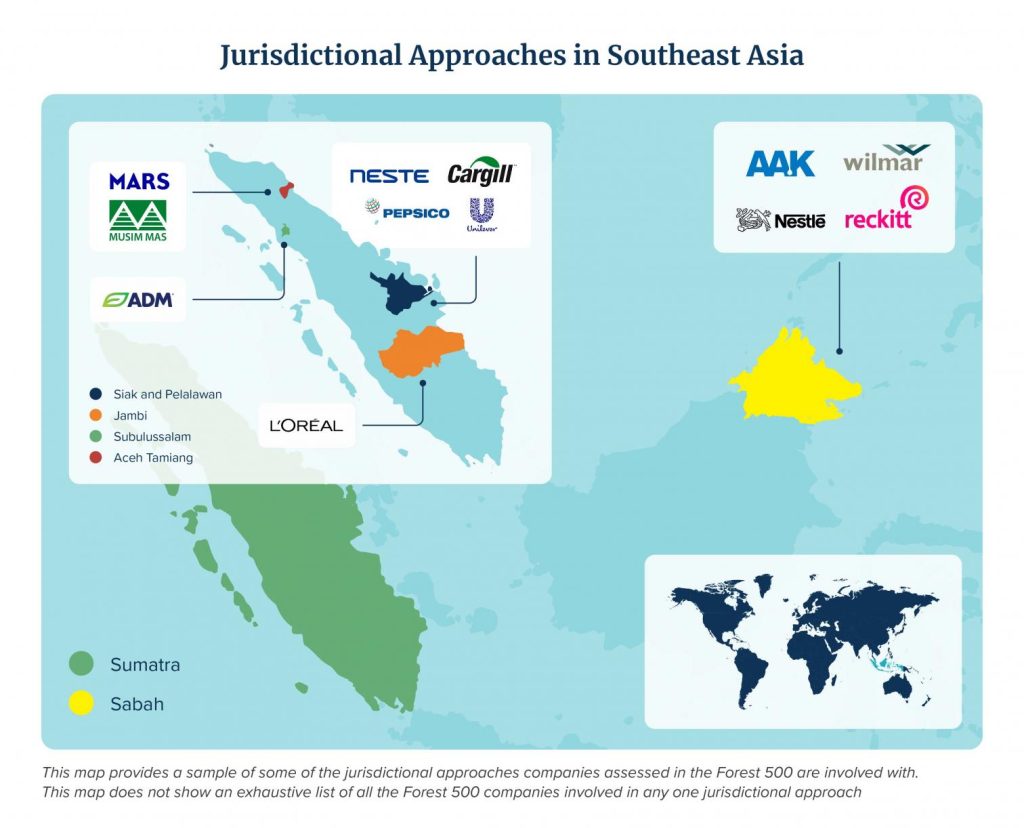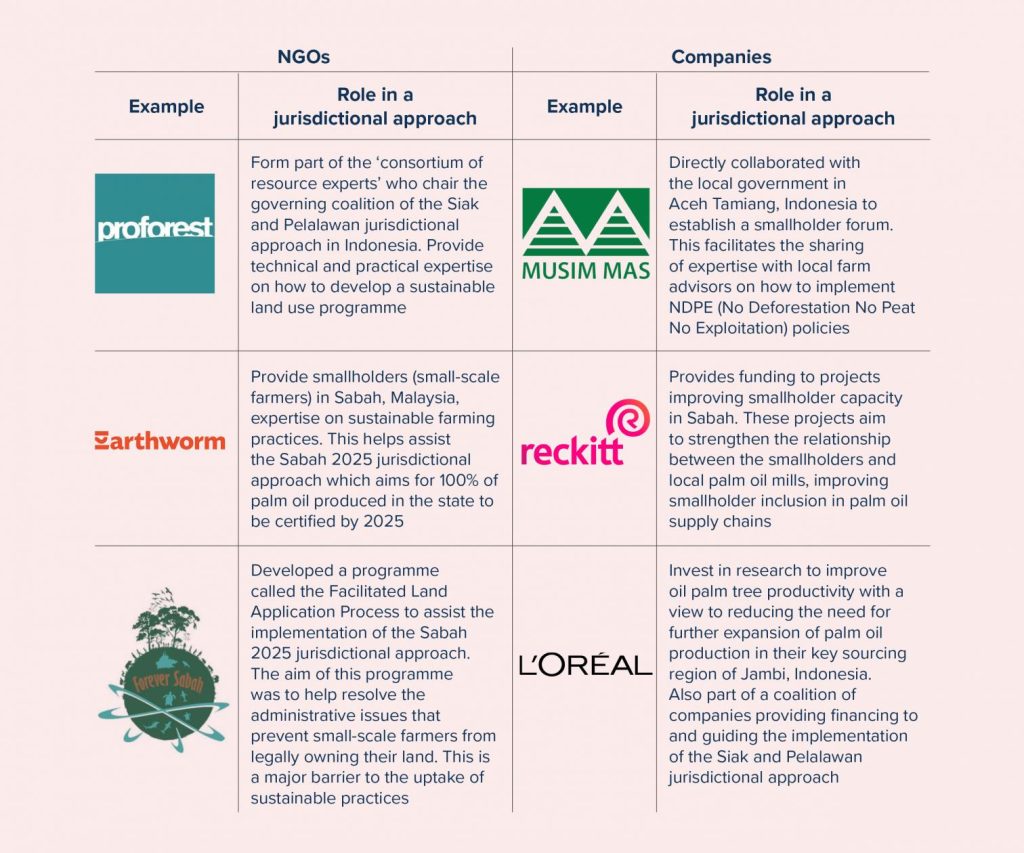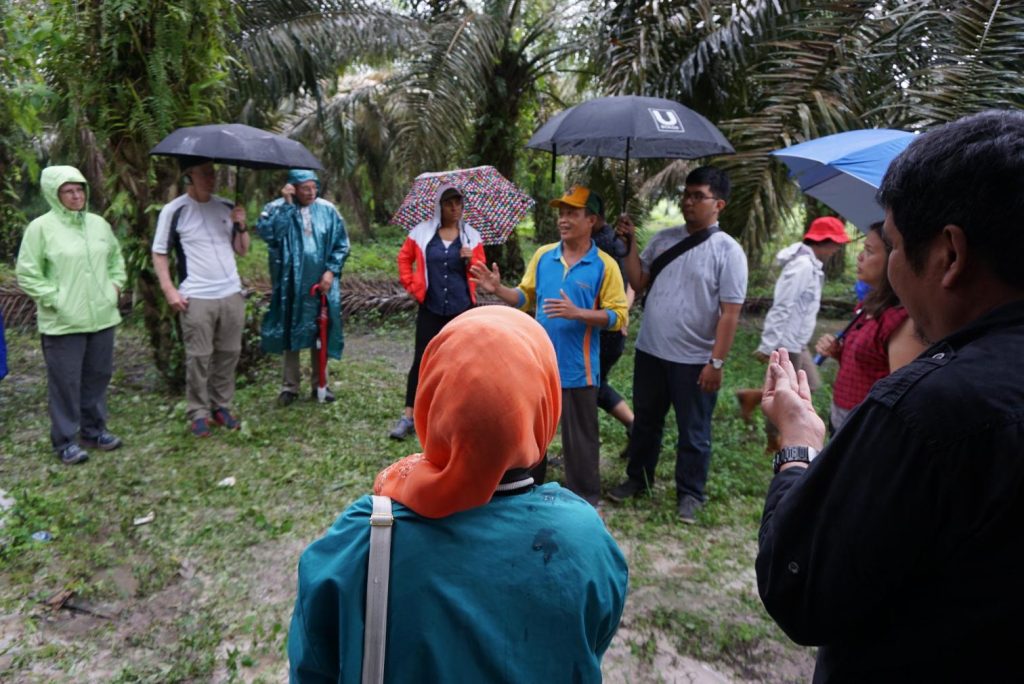This impact story was originally posted by Forest500 here.
Some companies see partnership with local governments as a way to ensure deforestation-free supply chains, but their results are not guaranteed.
Currently companies seeking to guarantee deforestation-free commodities often focus on individual supply chains, only working with trusted suppliers. But some companies are trying a broader approach, working in collaboration with initiatives led by local governments to improve the sustainability of commodity production across entire provinces or districts. These “jurisdictional approaches” often focus on wider sustainability, but can also drive efforts to address deforestation.
A growing number of companies in forest-risk supply chains are involved in jurisdictional approaches (see map) and this will now be recognised in the on-going Forest 500 assessments for the companies most exposed to tropical deforestation. But the jury is still out on how effective they are at addressing deforestation.

What is involved in a jurisdictional approach?
Jurisdictional approaches are initiatives to establish sustainable land use across entire regions. They can allow the companies involved to help tackle deforestation across a whole sourcing region. This is in contrast to companies that focus on minimising their exposure to deforestation by working with trusted suppliers to secure deforestation-free commodities. Mike Senior of consultants Proforest, says the latter approach means they fail to exert their potential influence on land-use practices at a regional-level and so deforestation continues in the broader landscape.
There are a range of ways companies and NGOs can collaborate on jurisdictional approaches and exert influence on land use practices (see table below). Companies can for instance collaborate with NGOs to establish projects that help a jurisdictional approach achieve its goals. Or, companies can input on the governance of a jurisdictional approach through an independent governing body.

How could jurisdictional approaches help tackle deforestation?
Jurisdictional approaches can help address deforestation by helping implement sustainable land-use policies that in turn drive down deforestation, using a mix of planning policy and support for sustainable land-use projects.
For example, in Siak and Pelalawan districts in Sumatra, Indonesia, the local government is implementing a green district plan providing legal protection for the remaining forest in the region. This prevents companies from being able to obtain the legal permits needed to clear these forests to expand their palm oil operations.
Forest conservation plans have also been introduced for communities considered high risk for deforestation. These plans are developed with the expertise of NGOs and are implemented with funding from the companies involved. Together, this combination of planning policy and forest conservation plans help reduce the risk that palm oil sourced from the region comes from deforested land.
Additionally, the goal of this jurisdictional approach is to achieve zero deforestation from palm oil by 2025. If reached, this could reduce the need for companies to trace to plantation to guarantee deforestation-free palm oil.
As part of the initiative, the local government is also working to legalise land ownership for smallholders, in return for making their plantations more sustainable. Because many small-scale farmers do not legally own their land, they have little incentive to invest in more sustainable practices. Often, this is not just funded but also directly supported by supply chain companies.

Problems with the jurisdictional approach
In larger jurisdictions such as Sabah, Malaysia, it has proved more challenging to use planning policy to introduce sustainable land-use practices. Sabah’s jurisdictional approach is centred around a target of achieving 100% RSPO certification for palm oil by 2025. Key to achieving this goal is providing small-scale farmers with the legal ownership of their land and providing the funding support needed to get RSPO certification.
Yet, as of 2021, only 26% of palm oil produced in the state was RSPO certified, with most progress limited to a handful of districts. This is partly because Sabah is a region with a complex history of land conflicts leading to challenges in processing land ownership applications.
Sabah’s challenges with land conflicts mean that much of the palm oil produced in the state continues to be associated with human rights abuses. Across Sabah palm oil plantations have been planted on Indigenous territories without consent. Yet, the jurisdictional approach here lacks any clear process for addressing the effects of deforestation on indigenous people’s territorial rights. Without the political will to tackle them, jurisdictional approaches can allow the human rights abuses associated with deforestation to continue.
The challenges faced by Sabah also highlight a common issue with jurisdictional approaches. They need extensive funding and time from those involved. For example, engaging with smallholders or consulting on forest conservation plans across large areas can be time-consuming and costly. Mike Senior, from Proforest, says without the necessary commitment of funding, time and expertise, jurisdictional approaches can become a collection of projects rather than a cohesive programme to establish sustainable land use across a whole region.
There is also a risk that more sustainable practices in one area drive less sustainable companies elsewhere. As Forest 500 shows, companies vary widely in their willingness to engage with efforts to address deforestation. Companies who want to continue clearing forest to expand their operations may simply relocate to jurisdictions without sustainable land use initiatives, creating “leakage”. This can undermine the role jurisdictional approaches play in tackling deforestation on a global scale.
How to unlock the potential of jurisdictional approaches
Jurisdictional approaches could play a key role in helping companies tackle deforestation throughout their sourcing regions, not just in their own supply chains. However, the challenges involved mean companies need to be prepared to invest time and resources in helping drive jurisdictional approaches forward. Companies can seek practical guidance on the different ways they can engage with jurisdictional approaches through the Jurisdictional Approaches resourcing hub, hosted by the Tropical Forest Alliance.
It is too soon to say that jurisdictional approaches have established a guaranteed recipe for success, but they have shown some potential. Accountable governance structures with independent oversight, alignment of the different actors over the approach’s goals and secure access to funding are likely to be key. Nevertheless, realising the potential of jurisdictional approaches requires significant commitment and political will from all parties, which can be hard to guarantee.